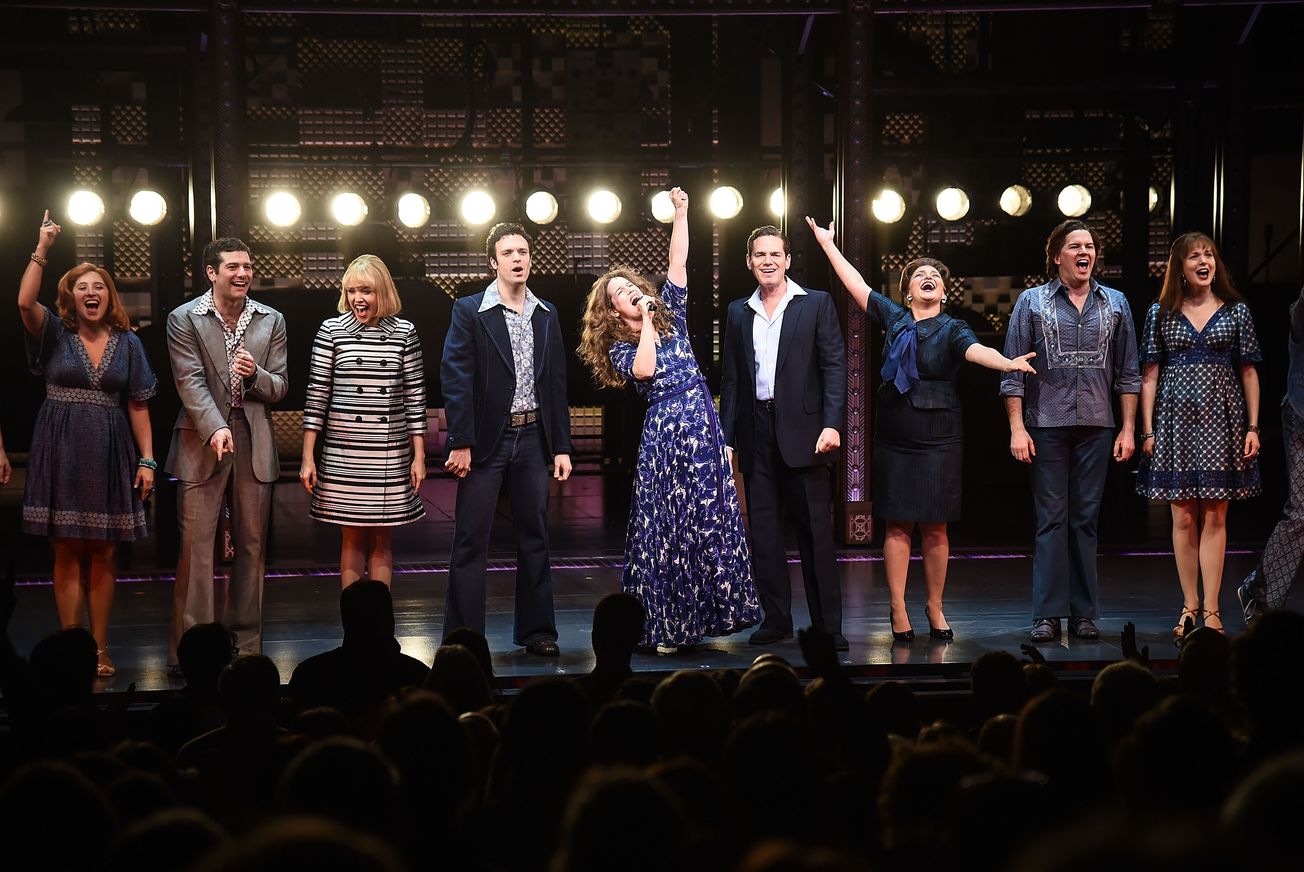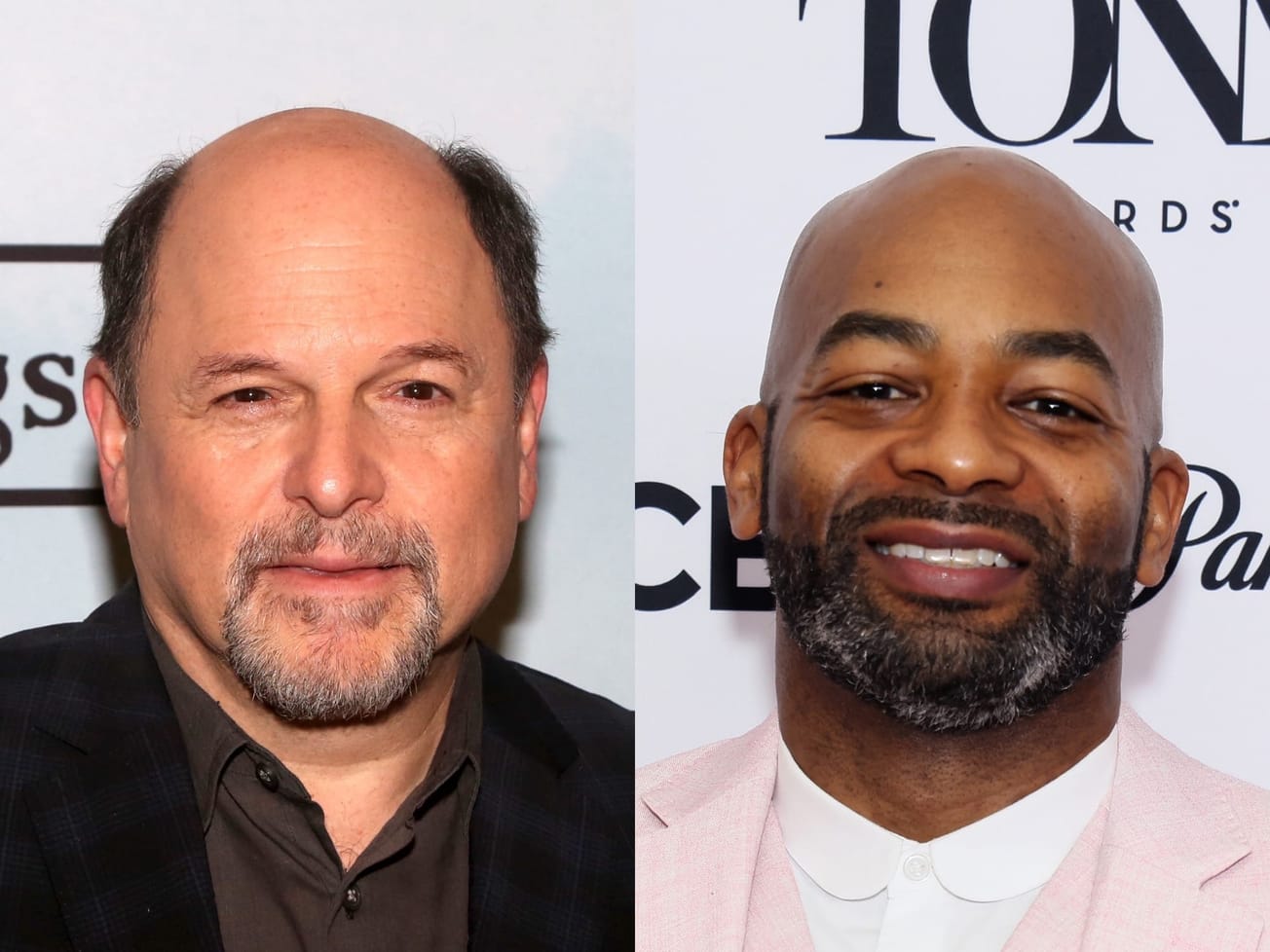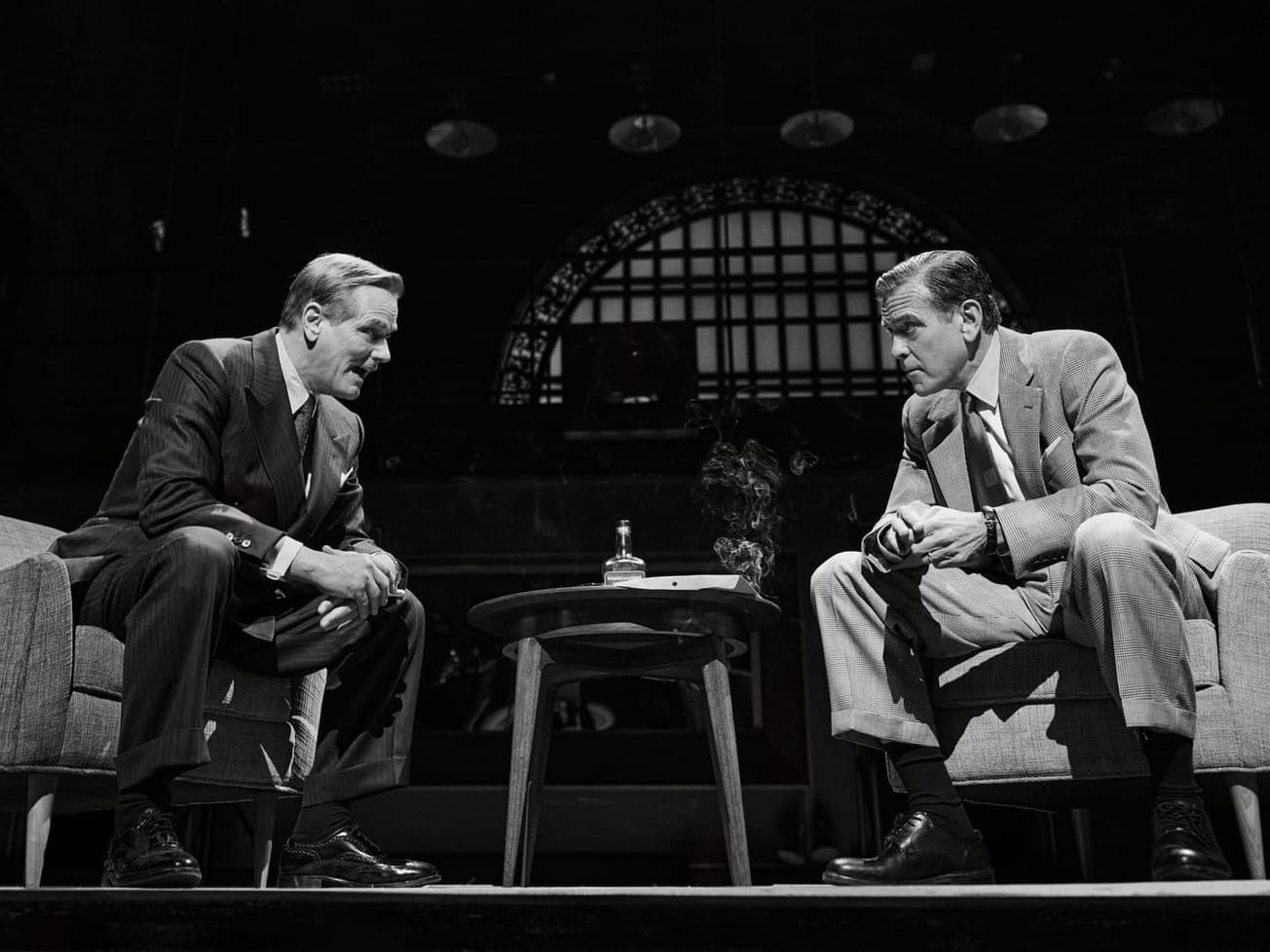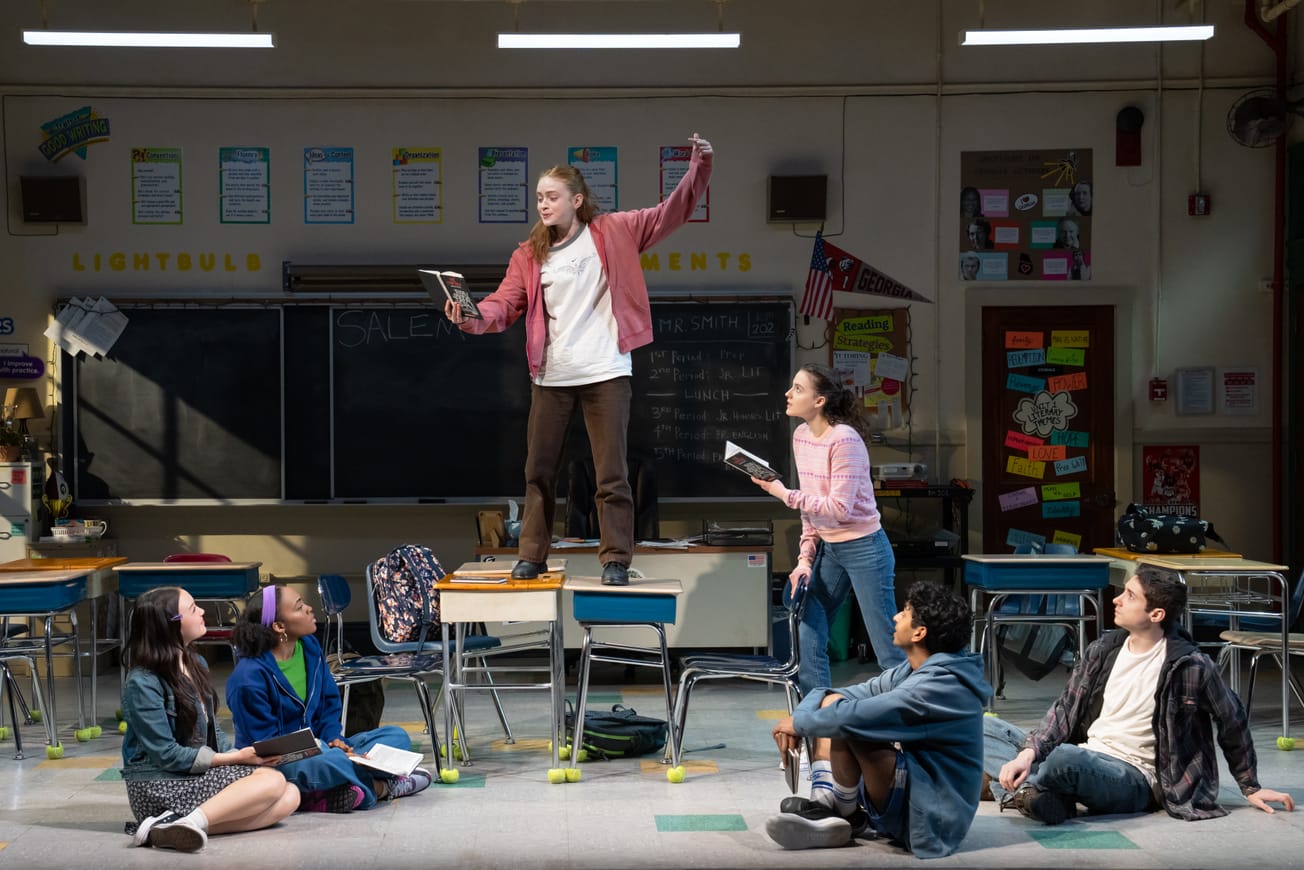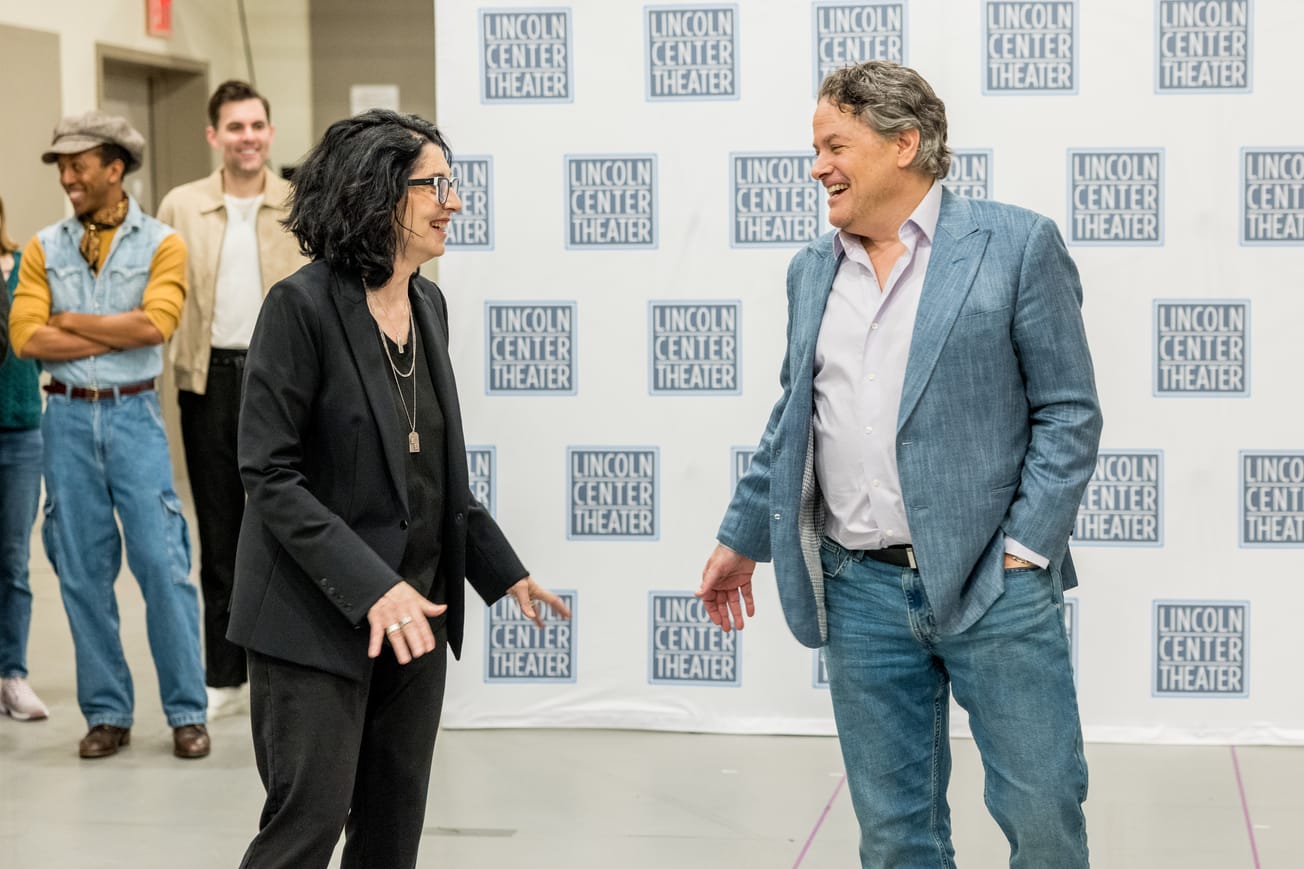Paul Blake has a reputation for being able to broker difficult agreements.
The former executive producer of the Muny in St. Louis had made his Broadway debut producing and writing the book for “Irving Berlin’s White Christmas,” a production that came about only after he was able to persuade the Berlin estate to allow him to adapt the closely guarded songs into a musical.
And so, about eight years ago, Blake got the call from Roger Faxon, then the president of EMI Music, to produce a Carole King musical that had been in limbo due to the differing views of the participants: Cynthia Weil, Barry Mann, Gerry Goffin and King.
“One of them definitely wanted to do the show and saw it as a retrospective of his material. The other one definitely wanted to do the show and saw it as a documentary. The third one had already written the show and thought that’s what it should be. And the fourth one didn’t want the show to happen in any way possible, and that was Carole King,” Blake said.
As lead producer, Blake pushed forward with book writer Douglas McGrath and eventually invited King to a reading, which she left at intermission. Still, she gave her blessing to go on with the show.
What resulted was a Broadway musical that ran for close to six years, from January 2014 to this past Sunday, and sparked an ongoing North American tour, international productions and an upcoming film adaption. Plus, King became a fan. (Her publicist confirmed her history with the show, noting that King has since seen almost of all of the actors who have played her on Broadway and seen the show outside of New York).
Blake spoke with Broadway News about what it takes to sustain a show over a long run and what’s next for ‘Beautiful.’ Edited excerpts:
Broadway News: When did Carole King end up seeing the show?
Paul Blake: We opened and she wasn’t anywhere in sight. We got very good reviews and we did very good business. But no Carole King. And about three months into the run, the phone rang and it was Carole King. She asked to see the script and then said she wanted to see the show. And she came in a disguise, with her daughter. They watched the show and she came on stage after the show to thank the cast and to raise money for Broadway Cares/Equity Fights AIDS.
BN: Do you think that was the turning point?
Blake: I think it was. We used to get fans saying, ‘I’m not going. Carole King doesn’t want this to happen.’ But when she went and she said how much she enjoyed it and it just sort of exploded. We had a huge couple of huge years then after that, which set us up for a couple more good years. The returns on this show are like, six, seven times. It’s crazy.
BN: The show recouped in 10 months, part of which you said was due to the ability to set premium-priced tickets and partly due to sticking to a budget (the musical was capitalized for $13 million). So how do you keep to a strict budget on Broadway?
Blake: You’ve just got to know what you have to spend the money on. I always spend the money on talent. You want the audience to get a big, rich, wonderful show. But it doesn’t need to be overproduced, you know, because they’re not coming to see the scenery. They’re coming to see the story and the songs and the performances.
BN: How did you keep up the momentum and sustain a show over an almost six-year period?
Blake: Well, number one, people loved the show. They very rarely said, ‘I liked it.’ They always said ‘I loved it.’ So the word of mouth of the show was very, very strong.
Second, my partner Mike Bosner is a genius at marketing and tickets and coordinating all the various elements of the social media. And we had great support from the ad agencies and the media companies that we worked with. We all kept it going.
And I’ve always kept the quality of the cast as high as I could. If they wanted to go to do other jobs, I’d always say ‘Great, just come back,’ and I’d give them a leave of absence because it’s great for them to leave, do other material and come back and be fresh and do six more months or another year.
BN: Since ‘Beautiful’ came to Broadway, many other biomusicals have cropped up. What gave yours staying power?
Blake: We had a good book. If the book isn’t good, I would just be a producer with a lot of great songs that people love and actors saying inane things to each other. Douglas McGrath, our book writer, gave us a wonderful, warm, funny, emotional story that made sense of those songs in the story. So not only were you hearing the songs you’ve loved, but you’re having a great time because the actors were saying wonderful, warm, funny things to each other and human things.
BN: So after all of that, how did you arrive at the decision to close the Broadway show?
Blake: We started having some soft periods. And after six years, we were no longer the new girl on the block. So many people have seen our show. We thought, let’s stop while we’re ahead rather than start to play to half houses. We did a big closing campaign and we went out on a high.
BN: Any news on the film adaptation of the musical?
Blake: It’s in process. I’m producing it with Playtone Productions, which is Tom Hanks’ company. It easily a year or so away, because we’re on a second draft of the script now, and that takes some time.


















































